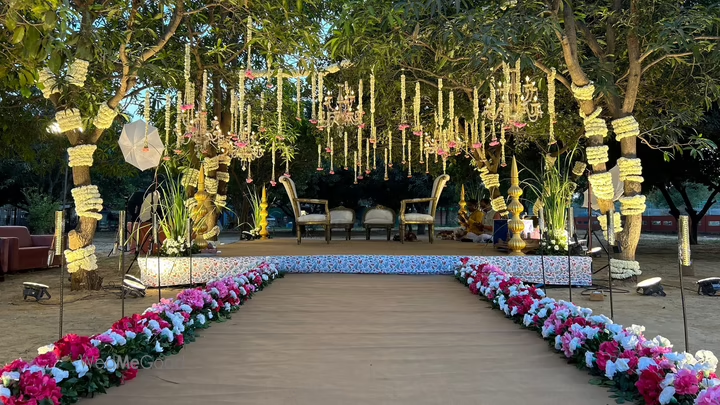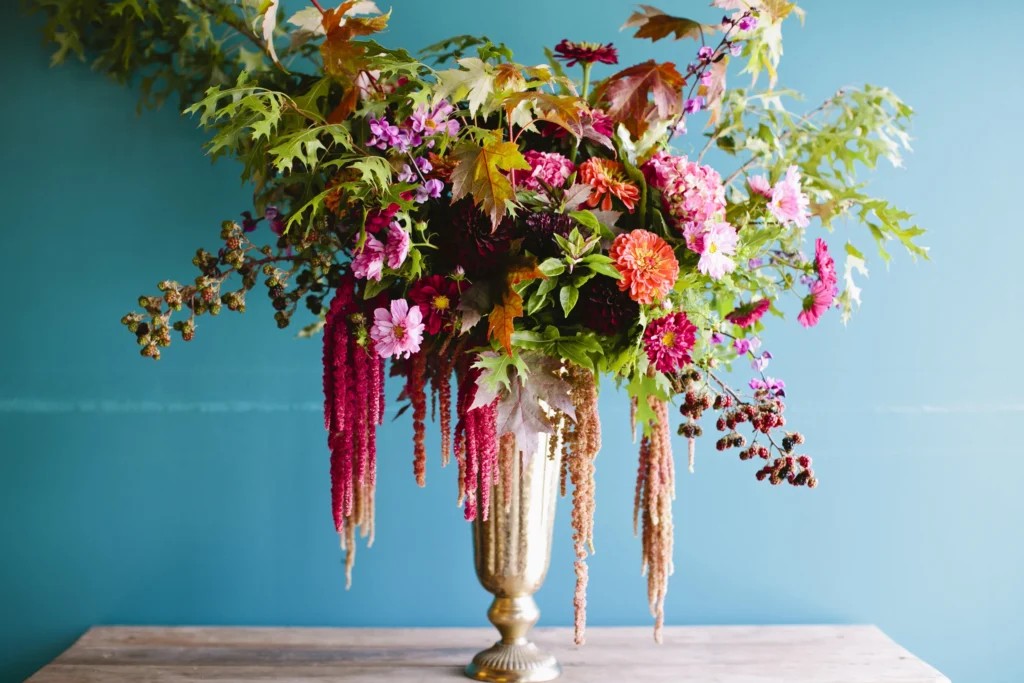How to Host a Sustainable Indian Wedding Without Compromise (2025-2026 Guide)
The grand Indian wedding is a spectacle of joy, a vibrant tapestry of tradition, family, and celebration. For generations, its grandeur has been measured in scale and opulence. But today, a new definition of luxury is emerging—one that is mindful, meaningful, and leaves a positive legacy.
Welcome to the era of the sustainable Indian wedding.
For the modern, socially conscious couple, luxury is no longer just about what you can see; it’s about the story behind the celebration. It’s about hosting an unforgettable event that not only dazzles your guests but also honors the environment and local communities. But how do you achieve this without sacrificing the grandeur and beauty inherent to an Indian wedding?


This is your ultimate guide. We will show you how to weave sustainability into every thread of your celebration, from the decor to the dining, proving that a green wedding isn’t about compromise. It’s about conscious choices that elevate the entire experience.
The Foundation: Where You Host is Your Biggest Statement.
This is your ultimate guide. We will show you how to weave sustainability into every thread of your celebration, from the decor to the dining, proving that a green wedding isn’t about compromise. It’s about conscious choices that elevate the entire experience.
1. Choose a Conscious Venue
The venue sets the tone. Look for properties that have sustainability built into their DNA.

- LEED-Certified Hotels:Major hotel chains like ITC Hotels are renowned for their commitment to green practices. Choosing a LEED-certified luxury hotel means your celebration is powered by renewable energy and follows world-class waste management standards.
- Heritage Properties:Many historic palaces and havelis practice conservation by their very nature, supporting local artisans and preserving history.
- Eco-Resorts:For a truly immersive experience, consider boutique eco-resorts in locations like Kerala, Coorg, or the Himalayas. These venues often grow their own organic produce and are built in harmony with nature. This is the heart of finding sustainable wedding venues in India.
2. The Intimate Guest List: The Ultimate Luxury
The most significant way to reduce your wedding’s footprint is to manage the guest list. While traditionally a challenge, a smaller, more intimate wedding is increasingly seen as a modern, luxurious choice. It allows for a higher-quality experience per guest, deeper connections, and a significantly lower environmental impact.
Décor That Dazzles, Not Discards: Your Guide to Eco-Friendly Wedding Décor
This is where creativity and consciousness beautifully intersect. The key to luxurious, eco-friendly wedding decor in India is a focus on natural, local, and reusable elements.
- Embrace Local & Seasonal Blooms: Instead of imported orchids and tulips, create breathtaking designs using locally sourced, seasonal flowers like fragrant jasmine (mogra), marigolds (genda), tuberoses (rajnigandha), and bougainvillea. This not only reduces your carbon footprint but also supports local flower farmers.
- Rent, Don’t Buy: Work with a planner who has an inventory of reusable decor structures—mandaps, backdrops, and table settings made from wood, metal, and high-quality fabrics that can be used again and again.
- Ditch Floral Foam: This green foam is a non-biodegradable, toxic microplastic. Ask your decorator to use traditional, sustainable techniques like wireframes, moss, or Ikebana-style pin frogs.
- Light Mindfully: A daytime wedding is naturally eco-friendly. For evening events, use energy-efficient LED lighting and create a magical ambiance with hundreds of traditional terracotta diyas and candles.
- Living Décor: Instead of cut floral centerpieces, imagine tablescapes adorned with beautiful potted plants, herbs, or even small trees that can be given to guests as favors or planted after the event.




